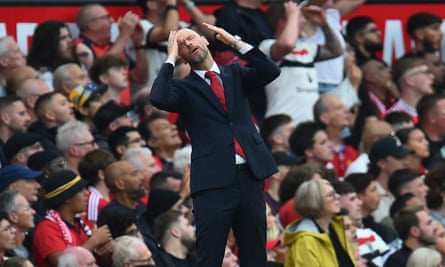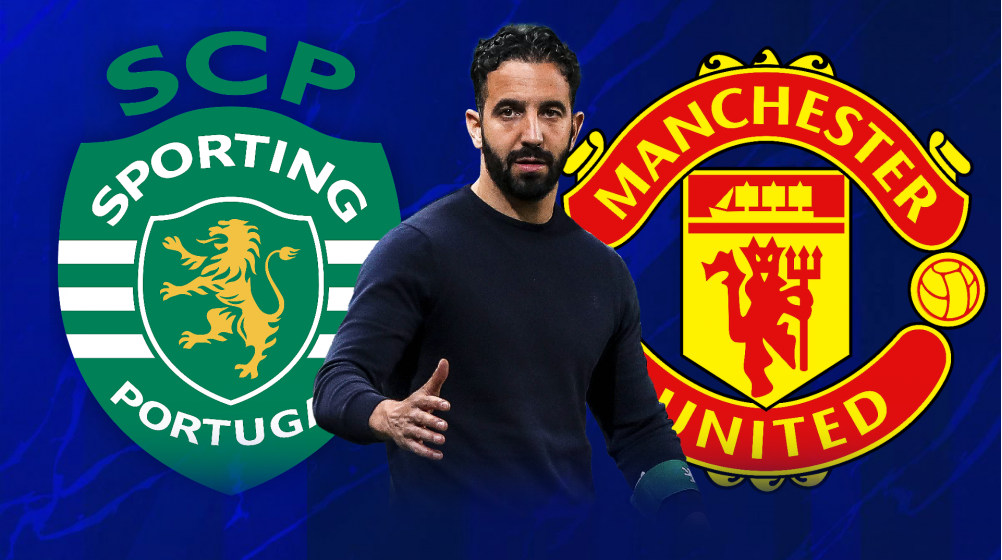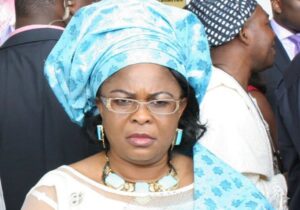At least there isn’t a recent example of Manchester United gazumping Manchester City to sign a 30-something Portuguese and it turning into an expensive farrago. The Sporting manager, Rúben Amorim, had been heavily touted to join City next summer should Pep Guardiola decide to stand down, particularly after the club’s director of football, Hugo Viana, was named as the successor to Txiki Begiristain at the Etihad Stadium.
On Monday, though, Amorim emerged as the preferred candidate to replace Erik ten Hag after the Dutchman was dismissed.
Amorim is no Cristiano Ronaldo. When Ronaldo rejoined United in 2021 his playing career was winding down, and he was a terrible fit for either the rapid counterattacking favoured by Ole Gunnar Solskjær, or for the industrious pressing demanded by Ralf Rangnick. Managing to offload him relatively cleanly was probably Ten Hag’s greatest achievement at Old Trafford. Amorim, by contrast, is a manager on the way up. The 39‑year‑old is arguably the brightest of the hugely promising generation of young Portuguese coaches and, as well as being linked with City, he was considered in the summer by Liverpool before they turned to Arne Slot.
After leading Sporting to the title in 2020-21, ending a 19-year drought, Amorim won it again last season and his side have started this campaign with nine wins in nine games. It had been thought Amorim would stay till the end of the season to try to retain the title, something Sporting have not managed in seven decades.
Idealism has become an unfashionable trait among modern managers, and there is a clear streak of pragmatism to Amorim. He will sit in a low block when required, but his preference is to press aggressively.
Which does raise the very obvious question of what on earth he is going to do with this United. Ten Hag, too, arrived with a reputation for pressing high, before being forced into a major rethink after his first two games brought defeats. The message was clear: you cannot press with Ronaldo, and you cannot play a high line with David de Gea.
Even when those two had left, though, Ten Hag’s side never pressed convincingly. Often individuals would go hunting the ball alone, and the United doughnut became notorious: half the side pushed high in search of possession, and half sat deep, leaving a vast hole in between in which opponents could frolic. Casemiro and Christian Eriksen no longer have the legs to press, Kobbie Mainoo is only 18 and it’s unreasonable to expect him to carry the tactical burden, while Manuel Ugarte has only just arrived and, so far, seems (understandably) befuddled by the chaos around him.

Both at Braga and at Sporting, Amorim’s preference has been for a 3-4-3, although he has interpreted it in two ways. The more common variant is to have two mobile deep‑lying midfielders, most recently Morten Hjulmand and Hidemasa Morita, sitting in front of the back three – a shortcut to creating the 3-2 defensive trapezium so beloved of coaches looking to counter the counter – which places great emphasis on the wing-backs as an attacking threat. It was in that system that Pedro Porro, now at Tottenham, first really caught the eye.
But while United have plenty of players who could operate either side of the centre-forward, attacking in the diagonal – and it’s possible to imagine Marcus Rashford, Amad Diallo or Alejandro Garnacho thriving in that role – they have nobody who looks a natural wing-back. Nor, in that system, is there an obvious place for Bruno Fernandes.
Were Amorim to get the job, that might force him in the short term to pursue his other alternative, a 3-4-3 in which the four is a diamond. At the base is a player who can step into the back line effectively to make a four, flanked by two shuttlers with a Fernandes‑style figure behind a central striker with two wingers. It’s not unreasonable to point out that a diamond in midfield of, say, Casemiro, Mainoo, Ugarte and Fernandes doesn’t look especially secure, but then there’s probably no permutation of United midfielders at the moment that would make much sense.
And that is the problem for whoever comes in. This is a squad that has been assembled expensively to no great effect. Which bits are meant to go together? What is the underlying philosophy? That’s where the decision to extend Ten Hag’s contract seems so costly; it’s not just his salary or the payoff he has been granted, but the £200m outlay on players this summer, presumably to suit whatever system Ten Hag thought he might be imposing.
It’s not just that the squad is so incoherent, it’s that it is now used to managers moving on and, as a result, resistant to the imposition of authority. There’s a culture that needs changing.
Overhauling United is an almighty job, and one that, recently, has had a tendency to chew up managers. Manchester United are still Manchester United and there is an allure to perhaps being the one who makes it all work again, but for a manager on the up it is also an enormous risk. If Amorim has other options, he should be considering them very seriously.










More Stories
Amorim insists Fernandes not leaving Manchester United amid Madrid reports
How debt burden pushed Nigerian boxer Segun Olanrewaju to a fight that took his life
Nigeria Taekwondo Federation boss, Abdullahi Saidu dies at 53